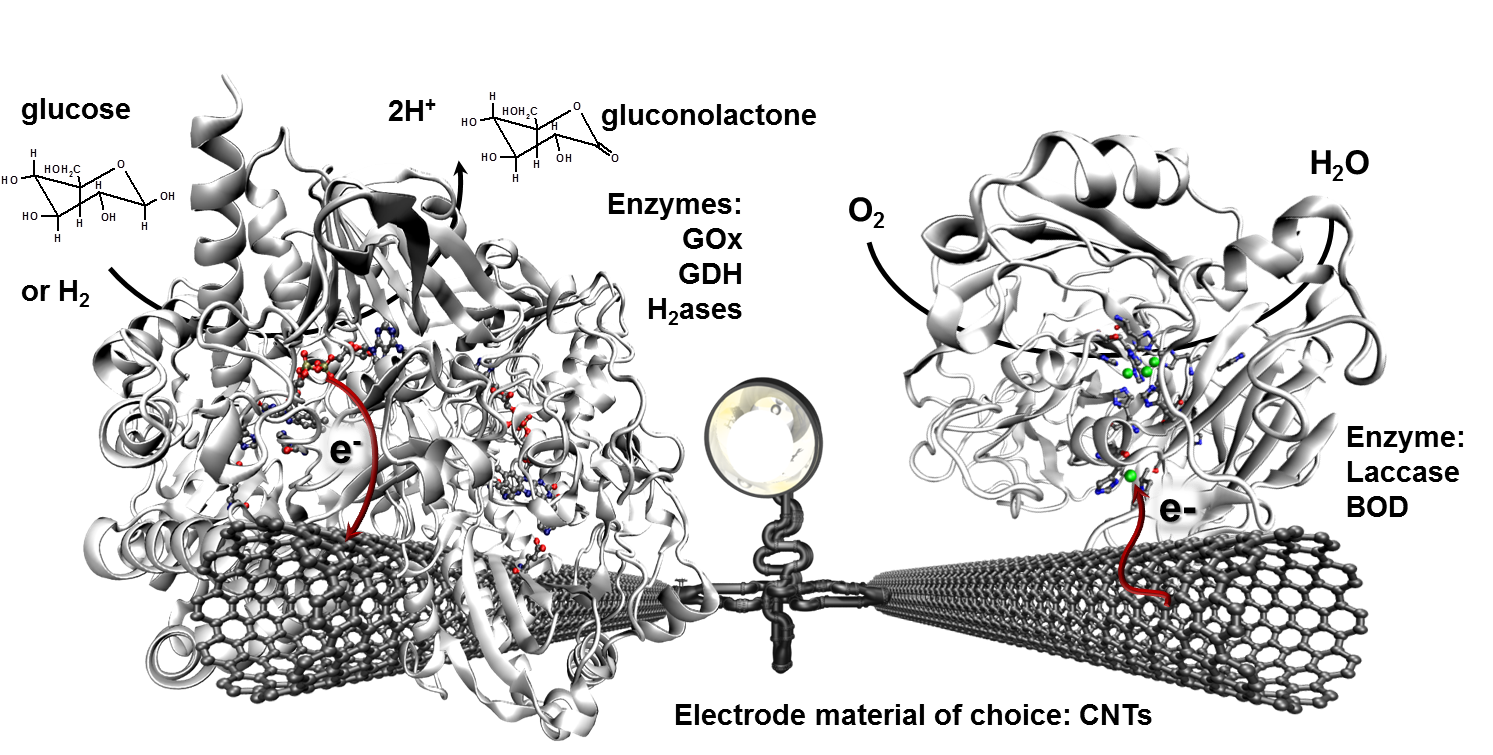- Imprimer
- Partager
- Partager sur Facebook
- Share on X
- Partager sur LinkedIn

The possibility to harvest energy out of non-toxic and non-combustible compounds like sugar opened the way for glucose biofuel cells, a research field with steady growing interest. Biological catalysts, enzymes, have the capacity to oxidize efficiently sugars and, in particular, glucose, mostly in a two electron oxidation process, at neutral pH and ambient temperature with high efficiencies and a unique selectivity. Such enzymes can be used as catalysts in isolated form (enzymatic biofuel cells) or even in cells (microbial fuels cells). Enzymatic biofuel cells provide promising power densities and can be integrated in miniaturized portable devices while microbial biofuel cells win over lifetime due to the natural regeneration of living cells. However, one constant challenge of these power generators is the transfer of electrons involved in the redox reactions to an external circuit. Small redox active molecules with appropriate redox potentials might be the solution for this drawback. Furthermore, molecular functions can specifically interact with a domain of the protein shell of enzymes which enables oriented immobilization leading to a direct electron transfer between the enzyme and the electrode material.
- Imprimer
- Partager
- Partager sur Facebook
- Share on X
- Partager sur LinkedIn